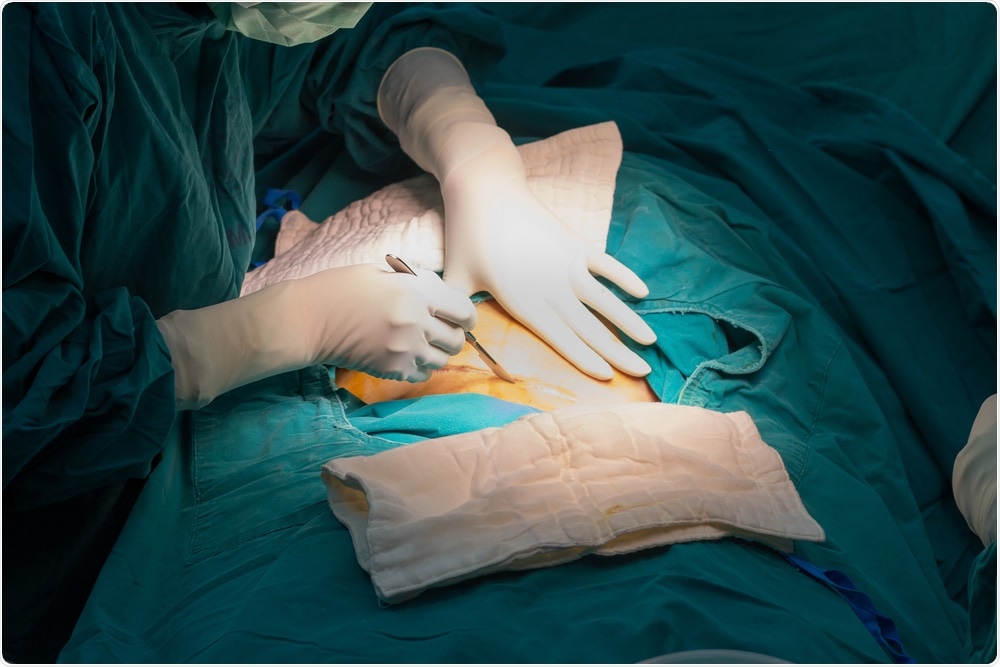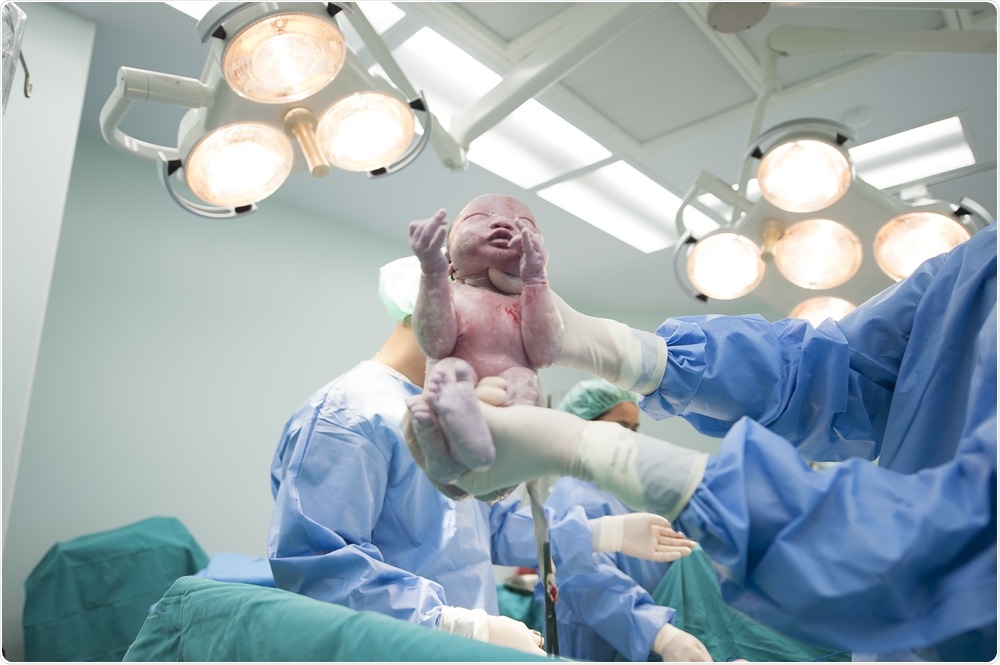Recent research into over 20 million births concluded that babies born by Cesarean section are more likely to develop autism. Analysis of 61 studies has also found that babies born by Cesarean are a sixth more likely to develop attention deficit hyperactivity disorder (ADHD).

Samrith Na Lumpoon | Shutterstock
Despite this, the small increase in autism incidence is being treated as a causal link between Cesarean and autism, which is not thought to be legitimate.
As the study is a epidemiological study, assessing a huge portion of the population and identifying patterns within that population, in this case patterns between ADHD or autism incidence and Cesarean birth, other factors such as the mother’s weight and age that may influence the development of these neurological conditions are not taken into account.
Additionally, no biological cause is demonstrated in epidemiological studies, meaning it does not explain why Cesareans may be linked to higher rates of autism and ADHD in children, only that a pattern between the two is evident. As such, there has been no conclusive link made between ADHD and autism incidence and Cesarean delivery.
Some scientists have branded the findings as “significantly flawed”, whereas Professor Jeffrey Keelan, the deputy director of the women and infants research foundation at the University of Western Australia has dubbed the study “interesting and well informed”.
However, he also stated that the study wasn’t able to adjust sufficiently for a range of factors that may explain the link made between Cesarean sections, ADHD, and autism.
The rise in Cesarean sections (with 26.2 percent of babies delivered this way in Britain, compared with 19.7 percent in 2000) has been linked with women having children later in life, and the rise of obesity.
Worldwide, cases of Cesarean sections have increased threefold, from around 6 percent in 1990 to 21 percent in 2015.
The study draws on literature citing associations between Cesarean delivery and an increased risk of obesity, allergies, asthma, type 1 diabetes, and acute lymphoblastic leukemia in children.
The study states:
Cesarean delivery also has a potential association with early brain development. Previous studies have reported worse child cognitive developed and higher rates of autism spectrum disorders (ASD) associated with Cesarean delivery. Whether Cesarean delivery is associated with increased risks of other neurodevelopmental and psychiatric disorders is unclear.”
Looking at why women have cesarean sections
Professor Andrew Shennan, Professor of Obstetrics at King’s College London, said:
“The need for cesarean is often caused by problems that could influence brain function, such as a poorly functioning placenta. It is highly unlikely the cesarean delivery itself is causal in these mental health conditions, from our current understanding of brain physiology and the effects of cesarean.”
He added, “Women should not be alarmed by the need for a cesarean which is often performed to reduce risk to their baby."
Dr Pat O’Brien, Consultant Obstetrician and Spokesperson for the Royal College of Obstetricians and Gynecologists definitively stated that the study does not draw a causal link between Cesarean and the two neurodevelopmental disorders focused on by the study:
“This systematic review and meta-analysis shows an association between Cesarean birth and autism and ADHD, but a number of underlying factors which may have led to the development of these conditions were not accounted for. Therefore, the findings of this paper do not show that Cesarean birth leads to autism and ADHD.
“Women who have a Cesarean birth should be reassured that it is a safe procedure. In many cases, a Cesarean birth can be a lifesaving intervention, as well as the right choice for mother and baby.”
 SweetLeMontea | Shutterstock
SweetLeMontea | Shutterstock
“Cesareans are a largely safe procedure”
Dr James Findon, Lecturer in Psychology at the Institute of Psychiatry, Psychology and Neuroscience, King’s College London, said:
“This study brings together the evidence of an association between Cesarean delivery and neurodevelopmental disorders. It is important to note the results do not suggest that Cesarean section causes neurodevelopmental disorders. Indeed, there is good evidence from sibling studies that there is no causal link between Cesarean section and autism.
“It is possible that the association stems from a genetic or environmental factor common to both neurodevelopmental disorders and the need for Cesarean delivery. Parents should be reassured that Cesareans are a largely safe procedure when medically indicated.”
Source:
Whitehouse, A. There’s no evidence caesarean sections cause autism or ADHD. August 28, 2019. The Conversation. https://theconversation.com/theres-no-evidence-caesarean-sections-cause-autism-or-adhd-122473
Journal reference:
Zhang T, Sidorchuk A, Sevilla-Cermeño L, et al. (2019) Association of Cesarean Delivery With Risk of Neurodevelopmental and Psychiatric Disorders in the Offspring: A Systematic Review and Meta-analysis. JAMA Netw Open. doi:10.1001/jamanetworkopen.2019.10236